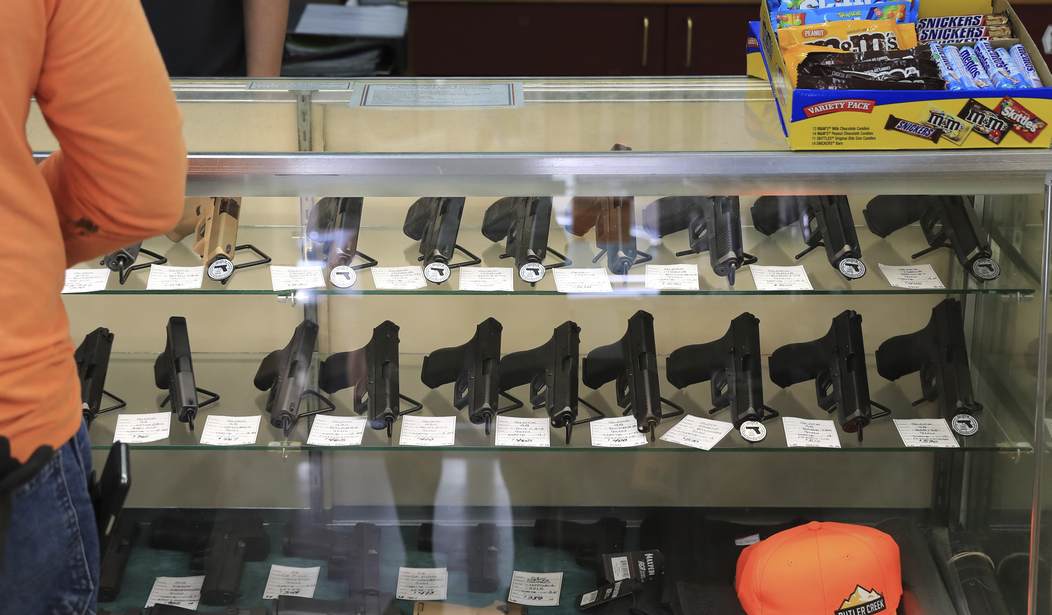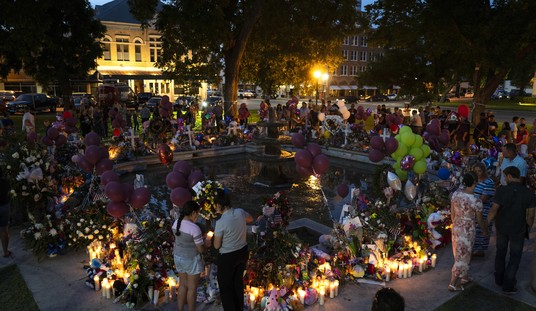University of Alabama law professor Frederick Vars is the author of "Weapon of Choice: Fighting Gun Violence While Respecting Gun Rights"; a premise that sounds wonderful, at least in theory. Unfortunately, Vars' version of "respecting" the right to keep and bear arms includes support for things like "red flag" laws and"universal" background checks, as he detailed in a 2022 piece for the Washington Post.
More recently, Vars has pushed for states to adopt "Do-Not-Sell" lists that would allow residents to disqualify themselves from purchasing a firearm. In a piece published by the Los Angeles Times, Vars calls the lists an "innovative tool" that can help reduce suicides. These lists are already in place in Colorado, Delaware, Utah, Virginia and Washington, but Vars wants to see them enacted across the country, and he says it's the big, bad gun lobby standing in the way.
So why are these laws so rare? Politics and profit. Bipartisan bills to enact Donna’s Law were introduced in Alabama and in Congress... Opposition from the National Rifle Assn. defeated those two bills, as it has in many other states. The NRA wants everyone to be able to buy a gun easily, even people who don’t want to be able to buy a gun.
To be clear, this has nothing to do with the 2nd Amendment. Donna’s Law has no effect on gun owners or anyone else who chooses not to participate. A person who already has access to a gun obviously doesn’t need to buy another gun for a suicide attempt.
The NRA is protecting the gun industry, not gun owners. In fact, when a thousand gun owners were asked about Donna’s Law, a majority supported it. The real “problem” with Donna’s Law is the same thing that makes it effective: It reduces gun sales. The industry seems to think that every gun sale is a good gun sale, even if the buyer is actively suicidal.
Is that really why the NRA has opposed these laws? On the NRA-ILA website, I found an alert from last December discussing a number of gun control bills brought up in Michigan, including SB 1086, which would have created a Do-Not-Sell list. NRA-ILA stated that "although joining such lists would be voluntary, removal from these databases has proven to be exceedingly difficult in the few states which have adopted such laws."
So, the objection seems to be about regaining the right to keep and bear arms, not preventing any gun sales. The study that Vars cites to support his claim that a majority of gun owners support Donna's Law was put together by Vars and his colleague Ian Ayers, and found about 56% of gun owners backed the idea. That's hardly overwhelming support, and I wonder if Vars truly believes that 44% of gun owners are just unwitting pawns of the gun lobby or, even worse, that they too "think every gun sale is a good gun sale, even if the buyer is actively suicidal."
Vars' contention that "Donna's Law" reduces gun sales doesn't really make much sense, because we're talking about a very small number. Three years ago I asked the Virginia State Police how many people had placed themselves on the "Do Not Sell" list. In August of 2022 there were just 24 names.
I followed up with the VSP this week, and as of June 17, 2025 there are now a whopping 56 names on the list. I suppose Vars could tout the more than 100% increase in the use of Donna's Law, but that's still a ridiculously small number, and my guess is that many of those folks would never have bought a gun in the first place.
There's also evidence that even with Donna's Law on the books, suicides have increased in Virginia. In fact, a report from the Virginia Department of Behavioral Health and Developmental Services last December says suicide rates have been climbing since 1999. Donna's Law has been in effect since July, 2021, but there's no evidence whatsoever that it's been effective in lowering the suicide rate.
I can't speak for the NRA, but my main objection to Donna's Law is simple: it's a way for politicians to avoid taking more substantive (and expensive) steps to improve access to mental health care by focusing on guns. The same is true of "red flag" laws, which have no mental health component to them whatsoever.
A dangerous person intent on harming themselves or others is still dangerous even if you take away their ability to legally possess or acquire a firearm... or allow them to strip themselves of that right.
I'll admit that Donna's Law is far from the most egregious abuse of our right to keep and bear arms, and there's even an argument to be made that it shouldn't be seen as a gun control law at all, at least in the traditional sense. But if we're going to talk about a gun-centric approach to harm reduction, I'd prefer to see grant money go towards efforts like voluntary off-site storage partnerships with FFLs to putting yourself on a government list and blocking yourself from buying a firearm.









